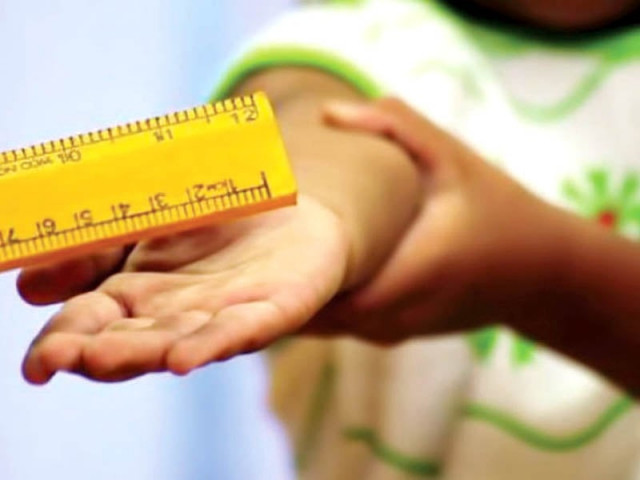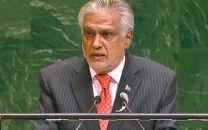Physical punishment: Changing law alone is not enough
Organisations working for children’s rights suggest steps to curtail corporal punishment.

“I don’t think there is anything wrong with it if someone isn’t doing their work,” said Halima, a student of eighth grade.
Though she has only been slapped once when she forgot to study a chapter, she says her brother in third grade, who is a “difficult” student, gets punished regularly at school and home.“Even though Asim has a home tutor, it is difficult for us to make him study. We have to resort to hitting him as there is no other way to make him do something,” she said.
Asim and Halima are not the only ones who face harsh punishments in the name of discipline. Earlier this month, a seventh class student in Mianwali was allegedly left with a broken arm when he reportedly spoke in the middle of a lecture. Similarly, two months back, an eighth grader in Haripur fell into a coma after he was allegedly beaten for missing school for three consecutive days.
According to Plan International’s “Learn without Fear” campaign study, 89% of schools in Punjab, both public and private, use physical punishment as a disciplinary tool.
Similarly, data collected by Society for the Protection of the Rights of the Child (SPARC) indicates that around 35,000 high school students in the country drop out of school every year due to corporal punishment.
The figures, though shockingly high, are still only the tip of the iceberg, with hundreds of cases going unreported daily. This is despite the fact that Pakistan is a part of the United Nation’s Human Rights Convention, which clearly stipulates the prohibition of corporal punishment in schools.
A study conducted by Plan International in Punjab showed that the incidence of physical punishment is highest in public schools, followed by private school and madrassas.
However, the severity in which students are beaten is intense to the point of major injury or fatality. In addition, the incidence of punishment in madrassas is difficult to gauge as access to them is limited.
Organisations working for elimination of corporal punishment in schools believe the leading cause for rampant punishment is Section 89 of the Pakistan Penal Code, which gives leeway to children’s guardians to physically punish them.
According to SPARC’s recent survey, over 76% of parents in Khyber-Pakhtunkhwa believe moderate punishment is important to discipline children.
Education Coalition’s Aminul Rehman said, “Harsh punishments and beating by elders and older siblings is common in families. People usually associate this type of violence with disciplining and consider it as their duty.”
SPARC National Manager Imtiaz Ahmed said corporal punishment can have “deep and life-long psychological” impact on the children, such as low self-esteem and confidence.
Safdar Raza, Country Advocacy Manager for Plan International, said, “The amendment for the rights of children has been pending since 2009, I hope this bill will be taken up in December so that injustices against children can be legislated and put an end to.”
The amendment to Section 89 will ensure that children are not punished because they are different. It can bring the educational system a step further to nurturing the young minds patiently.
*Names changed to protect identity
Published in The Express Tribune, November 19th, 2012.



















COMMENTS
Comments are moderated and generally will be posted if they are on-topic and not abusive.
For more information, please see our Comments FAQ